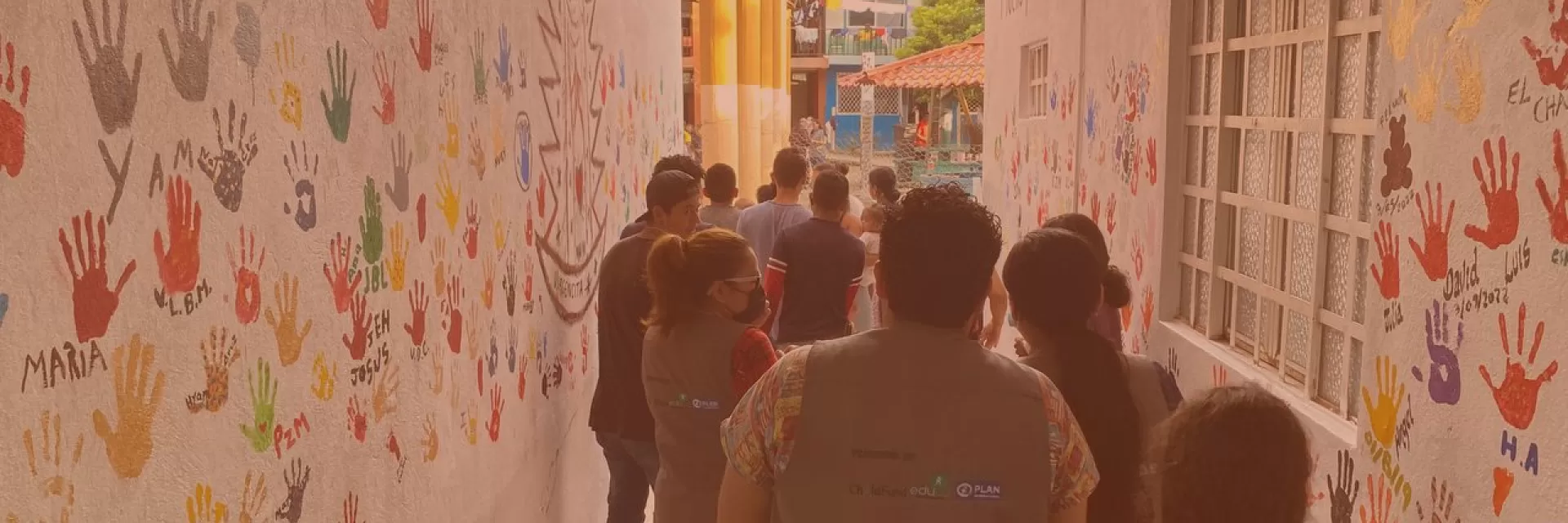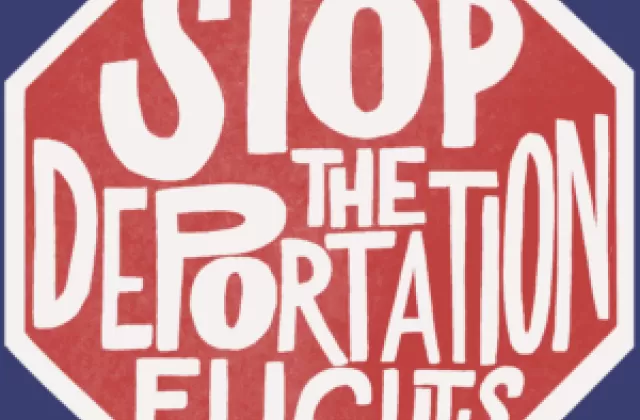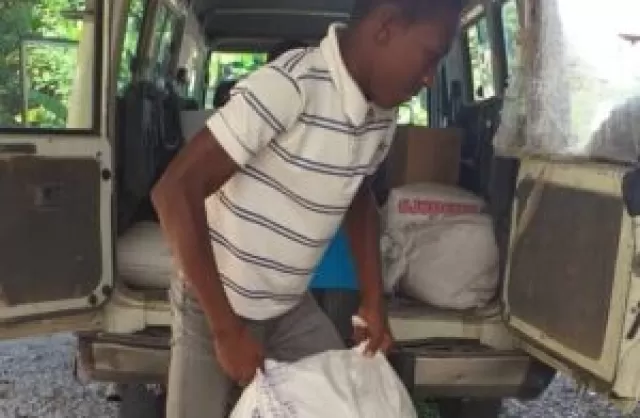Subscribe to our weekly newsletter HERE.
BHM Series: Garifuna Activist & Land Defender Miriam Miranda
For our last installation of this year's Black History Month series, we are highlighting the life and work of Honduran Garifuna activist Miriam Miranda.

The long arm of US border policy
"We are looking for a way to get out of Chiapas because in Chiapas there is no way to live because people are treating you like animals, your rights are being violated. So if we are refugees we are fighting so that we can get out and looking for a way to live so that we can eat.” —Haitian migrant statement to the Colectivo de Observación y Monitoreo de Derechos Humanos en el Sureste Méxicano, August 2021.
Opening the Veils of Vodou
For this week's Black History Month series at the Quixote Center, our board member Serge Hyacinthe explains the cultural and historical significance of Haitian vodou, and how it is often misrepresented.
Biden has deported nearly as many Haitians in his first year as the last three presidents - combined
Biden has expelled nearly as many Haitians in 12 months (20,200+) as were deported during the previous 20 years (22,000-23,000)*** under three different presidents. Indeed, Biden’s administration has likely expelled far more: In addition to these official removal numbers, another estimated 8,000 Haitians were expelled back into Mexico in September of 2021, voluntarily according to DHS Secretary Mayorkas, but in circumstances that make that characterization suspect.
The transition in Haiti: Where to now that February 7th has come and gone
February 7th was the day a new government should have been inaugurated in Haiti. The day came and went without a new president, or a new agreement on a process to elect one. It also passed without any significant protests or conflict. Given the security situation, that last bit is not really surprising.
BHM Series: Afro-Nicaraguan Artist & Poet June Beer
In celebration of Black History Month, the Quixote Center is launching a weekly series to highlight the history, leaders, and cultures of Afro-descendant communities in Central America, Mexico, and Haiti.
Title 42 extended, expulsions to continue
The Biden administration extended Title 42 again this week. This ensures that for the next 60 days at least, migrants encountered at the border will continue to largely be denied any kind of due process, most of them facing immediate expulsion.
Haiti's Biden Problem
The Biden Administration deported more than 16,000 Haitian refugees between September 19, 2021 and January 25, 2022. A large portion of these expulsions are family groups; nearly 20% of those expelled are children. The obscenity of expelling refugee children, some as young as 15 days old, would seem to require no complicated exegesis to demonstrate. It is quite obviously the wrong thing to do. Yet, Biden persists.
El Güegüense: A Tale of Nicaraguan Survival and Resistance
[caption id="attachment_10129" align="aligncenter" width="821"] Dancers in Diriamba wear painted, wooden masks. Image Courtesy of Ruta Virtual del Güegüense, Archivo Luvy Rappaccioli[/caption]
Dancers in Diriamba wear painted, wooden masks. Image Courtesy of Ruta Virtual del Güegüense, Archivo Luvy Rappaccioli[/caption]
DHS Accepting Public Comment On Family Separation
The Department of Homeland Security (DHS) is accepting public comments on how to prevent future administrations from separating families at the border until January 25th.
Weekly update on expulsion of refugees to Haiti, Take Action
The Biden administration continues to expel Haitian refugees at an alarming rate. 15,920 Haitians have been expelled on 148 flights since the current wave of mass deportations began on September 19. Over 18,000 Haitians have been expelled since Biden took office.
Seed delivery from Gros Morne to Camp Perrin
On August 14, 2021, a series of earthquakes struck Haiti’s southern peninsula, leaving 2,400 people dead and doing enormous damage to the area’s infrastructure. Like most of Haiti outside of Port au Prince, the peninsula is a predominantly agricultural area. Damage to roads and bridges, the death of farm animals, and mudslides from the tropical storm that struck the area a few days later, have all conspired to threaten food production.




